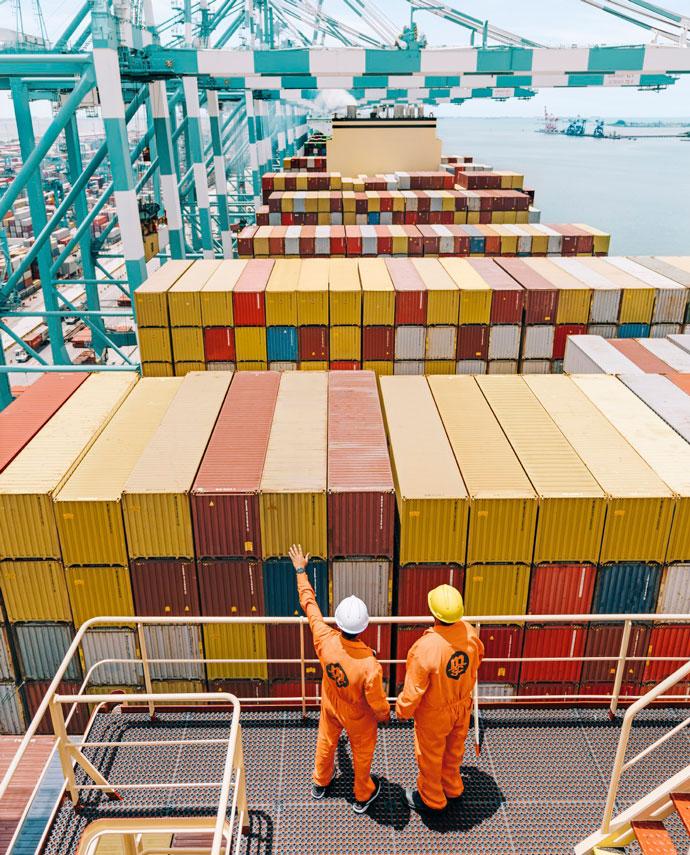'Weakened' Maersk paying a heavy price for its lack of fleet growth
MSC is flawlessly emulating dethroned rival Maersk’s old strategy by aggressively expanding its fleet and terminal network, according to Linerlytica analyst Tan Hua Joo.
Mr Tan was speaking at the Navigating the Volatility of Container Freight Rates conference in Singapore today.
As container freight rates rocketed to historical highs during Covid, MSC grew its fleet with newbuildings and second-hand vessels, while Maersk did the opposite, betting on an integrator strategy, reinventing itself as a comprehensive end-to-end logistics provider.
Mr Tan noted that with a fleet size exceeding 6.44m teu, MSC has built a large lead over Maersk, the former market leader’s fleet now just over 4.5m teu.
From having 80% of its fleet chartered, back in 2020, MSC’s ratio of chartered vessels now stands at 25% – the Swiss-Italian liner having increased its owned fleet to more than 400 ships.
Mr Tan said: “MSC is following the exact playbook Maersk used, which is to dominate the market, and it’s done it to perfection. Maersk has simply lost at its own game, because it’s not grown since its 2016 acquisition of Hamburg Süd.
“But what MSC is doing has also triggered a strategic response from the rest of the market, because CMA CGM, Cosco, Evergreen, and ONE can’t sit back and do nothing. Because, after all the record profits these carriers earned in these past years, they’re not going to sit on their cash pile. They’re going to spend it and build more ships, and go for this market growth narrative.”
Mr Tan said Maersk was paying a heavy price for its lack of fleet growth, as the Danish line’s Gemini alliance with Hapag-Lloyd was in a weak position, vis-à-vis its rivals in the transpacific space, with just 3m teu of capacity.
The rate of growth MSC has achieved is something completely unprecedented in the history of this industry, and this is going to drive a reaction from the rest of the market, including Maersk, he said.
Last week, The Loadstar reported that Maersk had temporarily increased its fleet to past the 4.5m teu mark, transcending its earlier announced cap of 4.3m teu.
This chase for market share, and very low demolition levels, is effectively perpetuating overcapacity, said Mr Tan, adding: “Everyone is doing the same thing. That’s going to drive a significant level of oversupply, the extent of which we’ve probably not seen before.”
He said that even as it was increasingly likely the Red Sea crisis would continue, it would be hard to avert a correction in freight rates this year.
High newbuilding orders and very low demolition numbers mean fleet growth would be 6%, if diversions continued round the Cape of Good Hope, and 15% if Suez Canal transits resumed.

